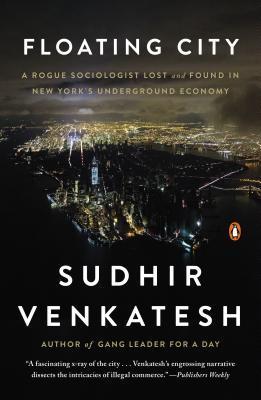What do you think?
Rate this book


304 pages, Paperback
First published September 12, 2013
This book rubbed me the wrong way. I almost don't know where to start my review because most of the notes that I took while reading were page citations of points where I felt the need to jot down a snide remark in response to a terrible passage. Probably what irritated me the most, though, is what a waste of a good premise this was. What could have been a book revealing the mechanisms of the black market underworld of drugs and sex in NYC is instead a sniveling, navel-gazing, haughty, self-congratulatory disappointment.
Stylistically, the problem with the book in one sentence is that it is written in a way that gives the impression that the author thinks his autobiography is as compelling as the biographies of his subjects. In a way, the book is narrated as a quest by a renegade professor for tenure at Columbia! The author is able to overcome the odds and fight through a dissolving marriage to still have contempt for the johns of the sex trade! The evil gatekeepers of Ivy League sociology departments, who are insistent on having “hard data” and “scientifically significant sample sizes” in their research can’t hold him down! Can't they see? He has a gift he wants to share with the world! The gift of being a self-made documentary filmmaker!
Kidding aside, my greatest recurring issue was that when the author expressed concern for his subjects, it often seemed to be trumped by a concern for how his subjects could help or hurt his career. Take this not atypical passage, as he was traveling back to Chicago, where “projects [where] I had studies were starting to get torn down, and I was traveling there to follow families as they were evicted and forced to relocate…I started to experiment with filming these families in an effort to make my first documentary. I was itching to tell Shine, because I hoped he might let me make a film of his escapades, but I was afraid he’d mock me for trying to rise above my station. I wanted to wait until I had something in the can, preferably with an Oscar for best documentary.” Really? Other passages include unnecessary quotes from his subjects, like when as aspiring madam confides to the author “Will you keep on talking to me about this stuff...It feels good to talk about and nobody else understands.” I lost count of the number of self-important sentences that began with “as an ethnographer…” Perhaps the most galling, though, was how early in the book, we find out that the upper crust boyfriend of the aspiring madam is verbally and physically abusive with her and steals her money. However, by the tail end of the book, the author is buddy-buddy with the boyfriend and passing along script ideas for the boyfriend’s nascent filmmaking business (which was founded in part with the stolen money from the girlfriend). All of these little asides came at the expense of getting a better understanding of the subjects and seemed to leave the subjects’ stories partially untold.
From a content perspective, the book suffers from a limited number of perspectives to advance a narrative theory. I get it: there is limited interaction in NYC between high society and the poor except for when their paths cross in the drug and/or sex industry. And it takes a special person even in those circumstances to bridge that divide. But to advance that (let’s face it, intuitive) theory through the stories of one porn store clerk that goes missing, one drug dealer trying to make it in downtown, and two or three madams is less than compelling. Especially when I didn’t find there to be adequate hard data to illuminate his theories and make the necessary links. Other links that he only half-addressed were numerous. There are many allusions, but few details, to his previous research in Chicago and how that contrasts to NYC. There are allusions, but few details, to a crumbling marriage and how that contrasts to johns wanting to save their marriage with prostitutes. There are allusions, but few details, to the challenges of being an immigrant and how that contrasts to being a prostitute.
Maybe all of the interviews that the author conducted warranted a book. But this isn’t the book they warranted.